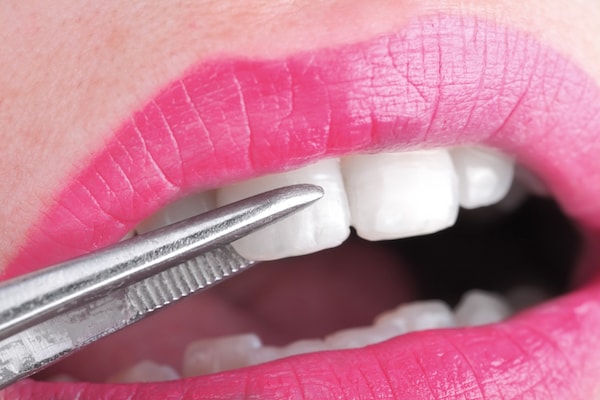Dental veneers are custom-made shells of tooth-colored materials that are custom-fit to cover the front surface of the teeth. The dental veneers can be made from various ceramics, composites, porcelains and zirconia and they are bonded to the teeth so they will change the shape, color and size of the teeth. In general, dental veneers are made from porcelains and the choice of which porcelain to use depends on the final results desired by the patient and the skill level of the dentist and ceramist working on the teeth of the patient.
 There are two methods that can be performed to manufacture and place dental veneers:
There are two methods that can be performed to manufacture and place dental veneers:
Before the veneers are created and placed, the dentist will often need to remove some of the tooth structure to make room for the veneers. The amount of tooth structure that is removed depends on the needs and goals of the individual patient. The dentist will then make an impression of the prepared teeth so a precise model of the teeth can be created. The mold from the impression is used to make the veneers.
Once the teeth are prepared, the dentist will usually place temporary veneers to protect the teeth until the regular veneers are ready to be placed. When the final veneers are ready to be placed, they are bonded to the teeth using special resins and adhesives. A bonding light is used to activate the chemicals in the resin cement to make them quickly create and harden the bond between the veneer and the tooth.
There are some cases where little to no tooth preparation is needed to place the veneers. The amount of tooth preparation that is needed to place the veneers depends on the individual needs of the patient. If the teeth need little to no preparation performed before they are placed on the teeth, this is known as “no prep veneers”.
People that are good candidates for dental veneers include:
Patients with gum disease in the area where the veneers will be placed are not ideal candidates. In addition, someone with teeth that are extremely crowded or teeth are broken down or have a lot of fillings are also not good candidates.
The cost of dental veneers depends on the number of teeth being treated, the amount of veneers that need to be created, amount of tooth preparation that needs to be performed, the area of the country where the treatment is performed and any fees charged by the dentist or the dental lab. In general, dental veneers cost anywhere from $900-$2500 per tooth.
 Patients do not have much recovery time after the dental veneers are placed on the teeth. They can usually go right back to work as well as resume their normal activities. The teeth might be sensitive for a few days after the veneers are placed but this will resolve on its own with no need for pain medication.
Patients do not have much recovery time after the dental veneers are placed on the teeth. They can usually go right back to work as well as resume their normal activities. The teeth might be sensitive for a few days after the veneers are placed but this will resolve on its own with no need for pain medication.
The results after the veneers are placed can be seen immediately. Patients will be given instructions on proper oral care to maintain the results. They should avoid from practicing any habits that can be harmful to the teeth such as using the teeth to open anything or biting their fingernails. Dental veneers will sometimes need to be replaced because they can chip or crack or suffer from discoloration or wear and tear. In general, dental veneers can last anywhere from 7-20 years.
Before having dental veneers placed on the teeth, patients need to do proper research and find a board-certified dentist that is experienced in placing dental veneers. The dentist should be experienced in all aspects of cosmetic and functional dentistry. During the consultation appointment, the dentist will discuss the current condition of the teeth and set realistic expectations about the results that can be achieved using dental veneers. Once they are placed on the teeth, dental veneers can improve the smile of patients as well as provide an increased self-image and more self-confidence in the appearance of their teeth.
MA